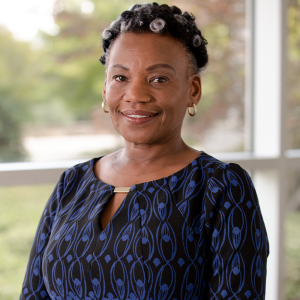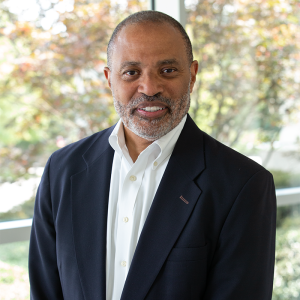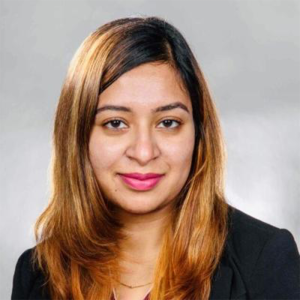Since its inception in 2023, the SAS HBCU Program has been dedicated to supporting faculty at historically Black colleges and universities (HBCUs) and predominantly Black institutions (PBIs). This initiative was created for educators who are passionate about learning and teaching analytics.
The program brings together faculty members at different stages of their analytics journey. Some are seasoned SAS users with years of experience in research or professional work, while others are new to analytics and eager to develop their skills and bring analytical tools into their classrooms.
Despite their varied backgrounds, these educators share a common goal: preparing their students with the analytic tools to give graduates an advantage in a competitive job market. They believe that nurturing these skills can be transformative, not just for their students but also for their communities.
The future of analytics is diverse and inclusive
During a recent panel discussion, HBCU+ Fellows gathered to share their thoughts on the future of analytics. The conversation was organized around three main themes:
- The future of analytics
- Finding the spark in students
- Identifying resources and pedagogical challenges
The panelists agreed on a shared vision for the future of analytics – one that is more diverse and inclusive. They emphasized that it isn’t just about teaching students how to use analytics tools but also about helping them understand the broader impact of data and AI on various industries.
- Pamela Queen
- Gregory Ramsey
- Harmandeep Sharma
- Mahmud Mansaray
Finding the spark through real-world scenarios
One key point discussed was the importance of making analytics relatable to students by connecting training to real-world scenarios. This approach helps students understand the real-world impact of analytics and prepares them to think critically about data, analytic tools and the insights that emerge from their use. By providing a range of real-world examples and hands-on experiences, faculty spark students' interest, teach them about biases and empower them to use analytic tools to address complex social issues.
This is particularly valuable for students who are apprehensive about new technology like analytic software, especially those without programming experience.
For example, Pamela Queen, PhD, a finance professor at Morgan State University and an HBCU+ Fellow, highlighted how she prepares her students to be aware of potential biases in data and AI.
“We really want to make sure students are aware of the potential biases that come out of data analytics, or the outcomes that can be a part of data analytics – especially as we try to look at AI algorithms,” Queen said.
The panelists agreed that beyond teaching students how to use analytic software, they prepare students to interpret data and recognize biases to address them.
Queen said, “I try to provide them with use cases that can detect these sorts of issues – issues with fraud detection and banking, with working with internal revenue services and other financial scenarios. These are good ways to practice this and get students to recognize the impacts of biases in data, analytics, and AI.”
Gregory Ramsey, PhD, a professor of information science and systems at Morgan State, added that some students will be developing systems and tools, and it’s integral for them to be aware of biases.
“I want to have discussions with them about what are the things that they need to be considering, the types of discussions that they need to foster in order to make sure that the data that we're using for training models is going to be inclusive,” Ramsey said.
For Harmandeep Sharma, PhD, a professor in the Natural Resources and Environmental Design department at North Carolina A&T State University, real-life examples are especially crucial. She noticed that students – especially in plant and animal science – become more interested when they collect their own data sets and apply statistical concepts to their projects. This hands-on approach sparks their curiosity and drives them to explore further.
"I encourage my students to start by asking the big questions – what are we really trying to solve? Then, we apply analytics tools to tackle those questions. It sparks their curiosity and makes them want to dig deeper, testing their ideas against other theories and questions," Sharma said.
Mahmud Mansaray, PhD, a professor of Business at North Carolina Central University, discussed the importance of these skills. He said that by providing a range of real-world examples, students also learn to identify the best tools for the job. He noted that the diversity in experiences and skills translates into the ability to choose the right tool at the right time.
"I want to have discussions about the importance of inclusivity in data and how it impacts model training. It's not just about diversity in people but also in experiences and skills. This diversity helps students develop the ability to choose the right tool at the right time," Mansaray said.
Overcoming pedagogical challenges in the classroom
The panelists acknowledged the difficulties they encounter when introducing new technology to students, especially those who may be hesitant or lack prior experience. They understand that learning to use analytic tools can be daunting for some students. However, these educators are committed to providing layered support to ensure their students succeed.
At their schools, these educators offer a combination of contextualized instruction and personalized mentoring to help students overcome these challenges. For instance, Mansaray shared how he continuously encourages students who are struggling to meet with him after class for extra help. This one-on-one attention helps students grasp complex concepts at their own pace and builds their confidence in using new tools.
Ramsey emphasized that when students feel overwhelmed, it’s sometimes necessary to "scale back and use the textbook." He believes in meeting students where they are and gradually building their comfort level with new material.
The SAS HBCU+ Fellows also stressed the importance of collaboration among educators. By sharing course materials and teaching strategies, instructors can lighten their workload and focus more on supporting their students. This collective approach not only benefits the faculty but also enhances the learning experience for students, making adopting new technology more manageable and less intimidating.
Get involved
If you’re passionate about enhancing your skills and teaching while engaging in meaningful discussions, consider applying to the next cohort of the SAS HBCU+ Fellows Program. Applications are open from August 26, 2024, to October 4, 2024. Selected participants will join the program from February to November, including a trip to SAS Innovate in Orlando, Florida.
WANT MORE GREAT INSIGHTS MONTHLY? | SUBSCRIBE TO THE SAS INSIGHTS NEWSLETTER





